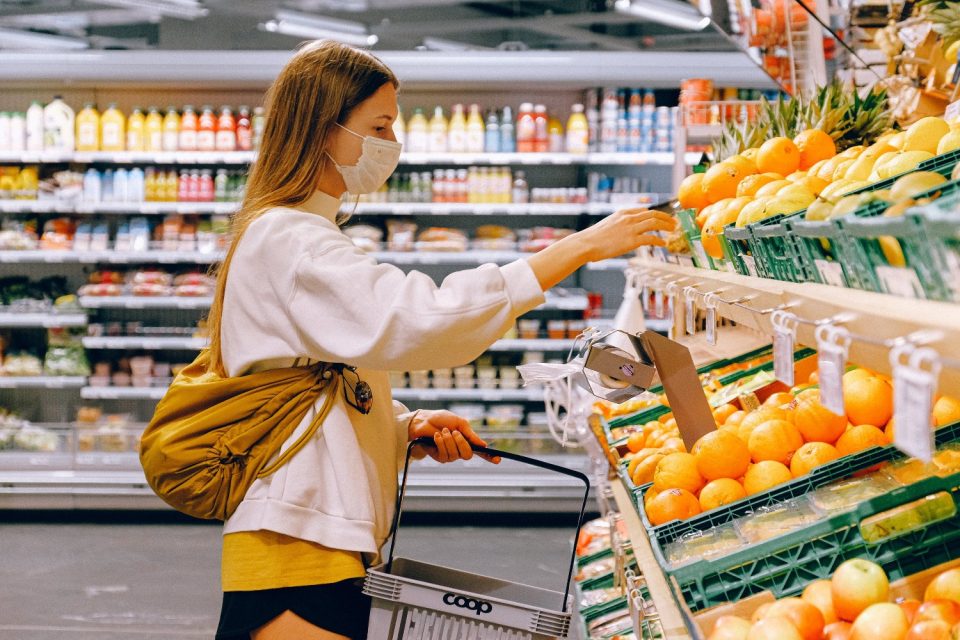End of negotiations between manufacturers and supermarkets: the bill will rise!
The European s know that the bill will increase at the checkout in supermarkets. The commercial negotiations are over
How much will yoghurts, minced steaks or pasta cost on the shelves this spring? Only certainty Thursday morning, a few hours after the closure of trade negotiations between supermarkets and the food industry: the bill will rise. These annual negotiations make it possible to fix the price and the conditions under which the supermarkets will be supplied by the manufacturers. They ended Wednesday at midnight, after three months of talks.
Particularly stormy this year, their conclusion will have a direct impact on the receipt of consumers who have already seen their purchasing power plummet due to food inflation estimated by INSEE (National Institute of Statistics) to 14.5% over one year in February. Manufacturers and the Federation of Commerce and Distribution (FCD) agree that the increase in the price paid by large retailers to their suppliers should be around 10%.
Tuesday evening, 24 hours before the close of negotiations, only 70% of food manufacturers had signed their contracts with all their customers distributors, a sign of the harshness of the discussions, according to the main organization of the sector, the Ania. “The vast majority will sign by necessity” at the last moment or lose customers distributors, noted Wednesday its president Jean-Philippe André.
The precise figure of the price increase obtained by manufacturers should be known in the coming days, the time to gather contracts and calculate but manufacturers have asked “between 10 and 12%” to pass on the rise in their production costs, according to the Ania. They had last March obtained an increase of about 3%, before the galloping inflation, linked in particular to the war in Ukraine, led to the reopening of negotiations to pass on the cost of agricultural raw materials, packaging, then gas and electricity.
“What we ask is higher than in previous years” in order to better remunerate farmers, stressed Wednesday on RMC the spokesman of the dairy giant Lactalis, Christophe Piednoël. Inaugurating the Salon de l’Agriculture on Saturday, Emmanuel Macron had called on supermarkets to “participate in the effort”, considering that the food industry had already made “a considerable effort in recent years”.
“Breaking prices”
The president of the first agricultural union, the FNSEA, Christiane Lambert, has stormed against some large retailers who refuse to pay “the fair share” that would allow farmers to live off their work. The brands, for their part, denounce the lack of transparency on production costs and the “crazy” demands of manufacturers. “The real figure is 15% increase that we are asked by manufacturers,” denounced Monday on France inter the CEO of System U, Dominique Schelcher.
According to the director general of the Federation of Commerce and Distribution Jacques Creyssel, “some multinationals have begun to negotiate very late and seek to take advantage of the inflationary situation” to impose increases of up to 20%. Its members warn that they will not be able to absorb alone these increases and will have to pass them on to the consumers. Without further details, the government spokesman Olivier Véran promised Wednesday that the government would try to “break the prices of everyday life” to preserve the purchasing power of the French.
Among the measures envisaged, a basket inflation proposed by the Minister Delegate for Trade, Olivia Gregoire, who assured Wednesday that this proposal, subject to many critics, had not been definitively discarded. Dominique Schelcher does not see a month of “red March” with a sudden rise in prices. “There will be food inflation throughout the first half of 2023”, because the increases will be passed on “gradually”, he predicts.
“Breaking prices”
The president of the first agricultural union, the FNSEA, Christiane Lambert, has stormed against some large retailers who refuse to pay “the fair share” that would allow farmers to live off their work. The brands, for their part, denounce the lack of transparency on production costs and the “crazy” demands of manufacturers. “The real figure is 15% increase that we are asked by manufacturers,” denounced Monday on France inter the CEO of System U, Dominique Schelcher.
According to the director general of the Federation of Commerce and Distribution Jacques Creyssel, “some multinationals have begun to negotiate very late and seek to take advantage of the inflationary situation” to impose increases of up to 20%. Its members warn that they will not be able to absorb alone these increases and will have to pass them on to the consumers. Without further details, the government spokesman Olivier Véran promised Wednesday that the government would try to “break the prices of everyday life” to preserve the purchasing power of the French.
Among the measures envisaged, a basket inflation proposed by the Minister Delegate for Trade, Olivia Gregoire, who assured Wednesday that this proposal, subject to many critics, had not been definitively discarded. Dominique Schelcher does not see a month of “red March” with a sudden rise in prices. “There will be food inflation throughout the first half of 2023”, because the increases will be passed on “gradually”, he predicts.



